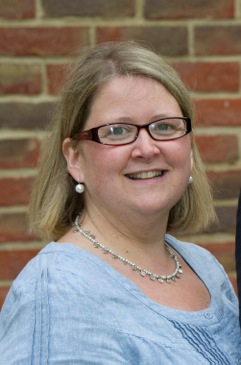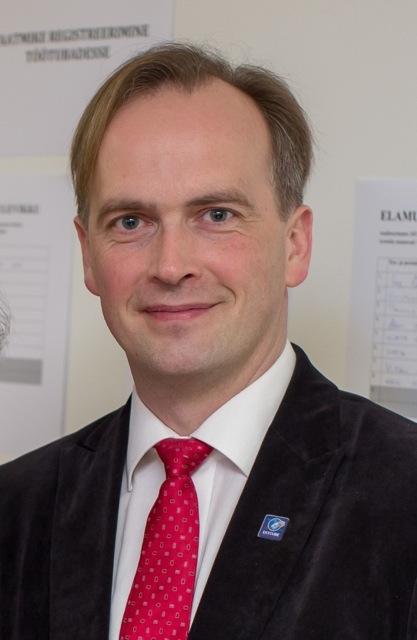Keynotes

Transforming higher education through student-staff co-creation of learning and teaching
Catherine Bovill, University of Edinburgh Abstract
Over the last five years, there has been a huge increase in activity within higher education that is variously described as student-staff partnership, student-staff co-creation and student engagement. Student-staff co-creation of learning and teaching and its related scholarship and research has many different aims, practices, foci and outcomes. However, within this vast array of work, what is clear, is that many of these practices and investigations are transforming patterns of learning and teaching in higher education and the ways that we think about learning and teaching (Cook-Sather, Bovill and Felten 2014). In this talk I will provide an overview of some key trends in student-staff co-creation and associated SoTL. However, I will also illustrate the potentially seismic transformational shift that may be required in the mindsets and practices of students, staff and policymakers if we are to move to these new ways of working. Indeed some would argue that these forms of collaborative working are a threshold concept for both students and staff (Cook-Sather 2014). In order to continue the positive transformations we are witnessing through co-created learning and teaching, I propose that not only do we need to acknowledge the challenging nature of changing mindsets, but we also need to pay more attention to the nature of student-staff relationships. Student-staff relationships are a litmus test that can reveal the value, respect and care we give to those around us. Student-staff relationships are key to enhancing the learning experience within any classroom or online course. I will highlight the massive potential of enhancing student-staff relationships and using co-creation with whole cohorts of students (Bovill et al 2016; Bovill forthcoming). Within universities, despite the continued dominance of a teaching pattern focused on whole cohort (often large) classes, whole cohort co-creation remains as yet, an underutilised site for student-staff co-creation of learning and teaching. References
Bovill, C. (forthcoming) Whole cohort co-creation of learning and teaching in higher education: enhancing the relationship between teacher and students. Bovill, C., Cook-Sather, A., Felten, P., Millard, L. and Moore-Cherry, N. (2016) Addressing potential challenges in co-creating learning and teaching: overcoming resistance, navigating institutional norms and ensuring inclusivity in student-staff partnerships. Higher Education 71(2), 195-208. Cook Sather, A. (2014) Student-faculty partnership in student explorations of pedagogical practice: a threshold concept in academic development. International Journal for Academic Development 19 (3) 186-198. Cook-Sather, A., Bovill, C. and Felten, P. (2014) Engaging students as partners in learning and teaching: a guide for faculty. San Francisco: Jossey Bass. Biography
Dr Catherine Bovill is Senior Lecturer in Student Engagement at the Institute for Academic Development, University of Edinburgh. She is a Senior Fellow of the Higher Education Academy, and an Editorial Board member for Teaching in Higher Education. She has published and presented widely on Student engagement, Students as Partners and Students and staff co-creating curricula. In 2014 she co-authored a book with Alison Cook-Sather and Peter Felten - Engaging students as partners in learning and teaching. Some of her recent publications include: Deeley, S. and Bovill, C. (2017) Staff-student partnership in assessment: enhancing assessment literacy through democratic practices. Assessment and Evaluation in Higher Education 42 (3) 463-477. Bovill, C., Cook-Sather, A., Felten, P., Millard, L. and Moore-Cherry, N. (2016) Addressing potential challenges in co-creating learning and teaching: overcoming resistance, navigating institutional norms and ensuring inclusivity in student-staff partnerships. Higher Education 71(2), 195-208.
Catherine Bovill, University of Edinburgh Abstract
Over the last five years, there has been a huge increase in activity within higher education that is variously described as student-staff partnership, student-staff co-creation and student engagement. Student-staff co-creation of learning and teaching and its related scholarship and research has many different aims, practices, foci and outcomes. However, within this vast array of work, what is clear, is that many of these practices and investigations are transforming patterns of learning and teaching in higher education and the ways that we think about learning and teaching (Cook-Sather, Bovill and Felten 2014). In this talk I will provide an overview of some key trends in student-staff co-creation and associated SoTL. However, I will also illustrate the potentially seismic transformational shift that may be required in the mindsets and practices of students, staff and policymakers if we are to move to these new ways of working. Indeed some would argue that these forms of collaborative working are a threshold concept for both students and staff (Cook-Sather 2014). In order to continue the positive transformations we are witnessing through co-created learning and teaching, I propose that not only do we need to acknowledge the challenging nature of changing mindsets, but we also need to pay more attention to the nature of student-staff relationships. Student-staff relationships are a litmus test that can reveal the value, respect and care we give to those around us. Student-staff relationships are key to enhancing the learning experience within any classroom or online course. I will highlight the massive potential of enhancing student-staff relationships and using co-creation with whole cohorts of students (Bovill et al 2016; Bovill forthcoming). Within universities, despite the continued dominance of a teaching pattern focused on whole cohort (often large) classes, whole cohort co-creation remains as yet, an underutilised site for student-staff co-creation of learning and teaching. References
Bovill, C. (forthcoming) Whole cohort co-creation of learning and teaching in higher education: enhancing the relationship between teacher and students. Bovill, C., Cook-Sather, A., Felten, P., Millard, L. and Moore-Cherry, N. (2016) Addressing potential challenges in co-creating learning and teaching: overcoming resistance, navigating institutional norms and ensuring inclusivity in student-staff partnerships. Higher Education 71(2), 195-208. Cook Sather, A. (2014) Student-faculty partnership in student explorations of pedagogical practice: a threshold concept in academic development. International Journal for Academic Development 19 (3) 186-198. Cook-Sather, A., Bovill, C. and Felten, P. (2014) Engaging students as partners in learning and teaching: a guide for faculty. San Francisco: Jossey Bass. Biography
Dr Catherine Bovill is Senior Lecturer in Student Engagement at the Institute for Academic Development, University of Edinburgh. She is a Senior Fellow of the Higher Education Academy, and an Editorial Board member for Teaching in Higher Education. She has published and presented widely on Student engagement, Students as Partners and Students and staff co-creating curricula. In 2014 she co-authored a book with Alison Cook-Sather and Peter Felten - Engaging students as partners in learning and teaching. Some of her recent publications include: Deeley, S. and Bovill, C. (2017) Staff-student partnership in assessment: enhancing assessment literacy through democratic practices. Assessment and Evaluation in Higher Education 42 (3) 463-477. Bovill, C., Cook-Sather, A., Felten, P., Millard, L. and Moore-Cherry, N. (2016) Addressing potential challenges in co-creating learning and teaching: overcoming resistance, navigating institutional norms and ensuring inclusivity in student-staff partnerships. Higher Education 71(2), 195-208.

Planting SoTL in a country – a living story
Mart Noorma, University of Tartu AbstractWhile being a young lecturer, seduced by the modern educational theories and the evangelists of good teaching practices, I knew that our university and all Estonia had to change. And surprisingly, so many “old school professors” did not want to change anything! Well, during the last ten years the university has changed enough to get me to the Vice Rector’s chair. And all of a sudden, I cannot blame the Rector’s office any more for being so slow and not doing the right thing. Now I have to explain to the new generations of active students and lecturers why the university works the way it works. But they are not satisfied, they want more and faster. Which is great, of course! So I would like to share with you the experiences of Estonia in transition from the XX to XXI century education. We have not been alone: a lot of good people from Sweden, Finland, Norway, UK and other countries have shared their experiences with us. What are those management decisions that can cause the required changes most efficiently? We have organized national level programs to bring universities together, established quality awards, communities of practice and good teaching grants. Even the scholarship of teaching and learning is a familiar concept in our academic community nowadays. There is still a long way to go but the aim is clear: all our teachers should be professionals not only in research but also in teaching (even when the resources and academic prestige come mostly from research).
Biography
Since 2015, Mart Noorma has been the Vice Rector for Academic Affairs of the University of Tartu. His research background is in physics and space research mixed with experiments on student engagement. While building spacecrafts with the Estonian Student Satellite team, he has worked as the director of the Center for Teaching and Learning of the UT, served as the Vice Dean for the Faculty of Science and Technology of the UT and as a member of the board of the International Consortium for Educational Development (ICED). In his free time, Mart is a judge in a popular Estonian TV show Rocket 69 which has successfully demonstrated that youngsters can become the national superstars not only because of their good singing or dancing skills but also for being smart.
Mart Noorma, University of Tartu AbstractWhile being a young lecturer, seduced by the modern educational theories and the evangelists of good teaching practices, I knew that our university and all Estonia had to change. And surprisingly, so many “old school professors” did not want to change anything! Well, during the last ten years the university has changed enough to get me to the Vice Rector’s chair. And all of a sudden, I cannot blame the Rector’s office any more for being so slow and not doing the right thing. Now I have to explain to the new generations of active students and lecturers why the university works the way it works. But they are not satisfied, they want more and faster. Which is great, of course! So I would like to share with you the experiences of Estonia in transition from the XX to XXI century education. We have not been alone: a lot of good people from Sweden, Finland, Norway, UK and other countries have shared their experiences with us. What are those management decisions that can cause the required changes most efficiently? We have organized national level programs to bring universities together, established quality awards, communities of practice and good teaching grants. Even the scholarship of teaching and learning is a familiar concept in our academic community nowadays. There is still a long way to go but the aim is clear: all our teachers should be professionals not only in research but also in teaching (even when the resources and academic prestige come mostly from research).
Biography
Since 2015, Mart Noorma has been the Vice Rector for Academic Affairs of the University of Tartu. His research background is in physics and space research mixed with experiments on student engagement. While building spacecrafts with the Estonian Student Satellite team, he has worked as the director of the Center for Teaching and Learning of the UT, served as the Vice Dean for the Faculty of Science and Technology of the UT and as a member of the board of the International Consortium for Educational Development (ICED). In his free time, Mart is a judge in a popular Estonian TV show Rocket 69 which has successfully demonstrated that youngsters can become the national superstars not only because of their good singing or dancing skills but also for being smart.
